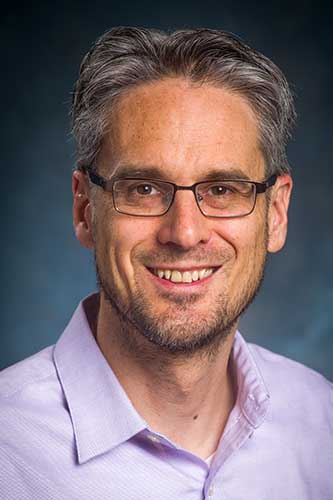John Osborne, Ph.D., assistant professor of medicine at the Department of Biomedical Informatics and Data Science, recently received a notice of award for a U24 supplement to develop a cancer algorithm predicting the severity of cancer recurrence in patients. The work will build on previously funded work to identify recurrence retrospectively in UAB cancer patients using structured EHR data and clinical text. 
He will serve as the remote site principal investigator (Harvard University is the parent site), and this award is an extension of a previous two-year supplement. The total of all the awards is over $100,000 in direct costs.
The data set of the research was validated by chart review by recent UAB graduate Dr. Sarah Fitro under the supervision of Dr. Gaurav Goyal and consists of over 20 cancer types sourced from the University of Alabama at Birmingham (UAB) Cancer Registry. A total of 504 recurrent cancer cases were identified along with an equal number of matching controls from UAB reportable cancer cases. This project looks to build on efforts previously funded by the National Cancer Institute's Informatics Technology for Cancer Research and aims to extend the Deep Phenotype (DeepPhe) software (https://deepphe.github.io/) to classify cancer cases as recurrent or non-recurrent.
Dr. Osborne and his team aim to work with the UAB Health System in replacing UAB's existing Cancer Registry Panel with the newer Phenotype Detection Registry System (PheDRS). Additionally, this extended version of DeepPhe will be utilized for the Natural Language Processing (NLP) portion of the research and will also assist with providing reportable cancer case detection. Through these research efforts, the modified DeepPhe software will predict both recurrence and recurrence severity, determining if the spread is local, regional, or distant recurrence.
“Recurrence is important because it is the primary pathway to cancer patient death, yet recurrence is not a mandatory reporting field for certified tumor registrars,” said Dr. Osborne. According to Dr. Osborne, their goal is to develop a deep learning algorithm for cancer recurrence to enable and accelerate retrospective analysis. They plan to distribute a de-identified version of their data set.
Assisting Dr. Osborne in these research efforts has been co-investigator Dr. Gaurav Goyal, MD, Assistant Professor of Hematology-Oncology at UAB, and graduate student Chris Coffee. Preliminary results for the data collection process will be presented at the American Medical Informatics Association (AMIA) Annual Meeting, scheduled to take place November 11th-15th in New Orleans. If any medical students or fellows are interested in participating in some capacity, they can contact Dr. Osborne at josborne@uabmc.edu or Dr. Goyal at ggoyal@uabmc.edu.